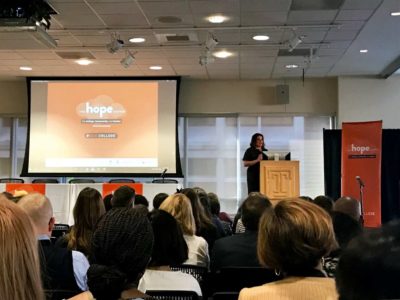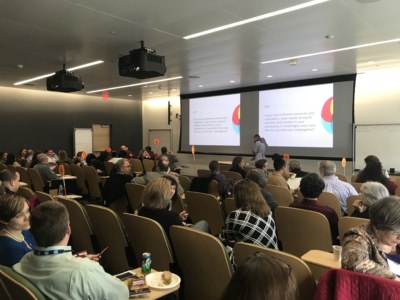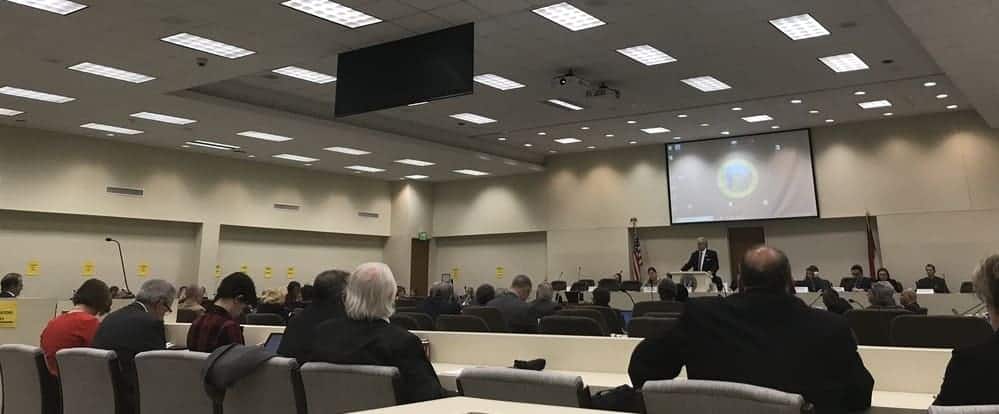Following the mass shooting at Marjory Stoneman Douglas High School in Parkland, Fla., state House Speaker Tim Moore, R-Cleveland, announced the formation of the state House Select Committee on School Safety. This committee, which is co-chaired by Rep. David Lewis, R-Harnett, and Rep. John Torbett, R-Gaston, met for the first time on Wednesday morning and will continue meeting throughout the year as needed.
“You on this committee are being tasked with making decisions on behalf of the children who might feel scared to go to school. Students are asking their loved ones if they’re safe, if their classrooms are a place they can learn and be free of fear,” said Speaker Moore. “We owe it to our students in North Carolina to make schools a space where students and educators can excel, and not have to worry about other matters.”
State Superintendent Mark Johnson also addressed the committee before presentations began.
“We owe it to every student to have the opportunity to go to school, work hard and succeed,” said Superintendent Johnson. “Part of that is also making sure that when they go to school, they go to a safe, welcoming environment.”
Rep. Torbett noted there are not preconceived ideas or outcomes for this committee, and encouraged committee members to listen to students, teachers, professionals and others in an effort to arrive at the best outcome. In future committee meetings, public comment on any topic related to the committee’s work will be allowed.
During the morning session, committee members heard from the following presenters and had an opportunity to ask follow-up questions.
Data on school safety threats
State Bureau of Investigation Acting Special Agent in Charge Elliott Smith presented data and statistics about the current status of school safety threats both nationally and across North Carolina.
According to Smith’s presentation, of the 300 school shootings nationally since 2013, 14 occurred within K-12 schools and universities in North Carolina, with one additional active shooter incident avoided in Macon County. Smith also noted that since the Parkland shooting, there has been an uptick in school-related threats and violence, particularly on social media platforms.
Smith said the State Bureau of Investigation uses proactive measures such as research, tools and technology to identify potential shooters before they act and intervene with local service providers. Smith’s full presentation can be found here.
School resource officers and physical safety
Task Force for Safer Schools chairman Sheriff Robert Holland described the task force’s three-pronged approach to school safety: physical security, having a school plan, and mental health. According to Holland, the task force’s critical incidence training that rolled out in March of 2014, replacing the previous curriculum from 1999, discusses tactics for before, during and after events related to school safety. All 115 school districts completed this training in April of 2014.
Kym Martin, director of the Center for Safer Schools, provided additional information about school resource officers in North Carolina. According to Martin, there are approximately 1,167 school resource officers in North Carolina, many of whom are shared between two or three schools.
According to Martin, the Center for Safer Schools conducted multi-stage forums across the state to allow community members and students voice concerns regarding school safety. Recommendations from these forums included the value and need for school resource officers, collaboration among agencies, and a better system of communication between students and personnel.
Martin also noted the school safety legislation passed in 2013 provides a relevant foundation for keeping schools safe, including grant funding for school resource officers and school alarm systems. She hopes the committee’s work will build on the foundation that legislation provides moving forward. Martin’s full presentation can be found here.
John Dorman from N.C. Emergency Management and the Task Force for Safer Schools described the online database that contains the floor plan for every school in North Carolina. These interactive floor plans allow first responders and law enforcement officials to easily access crucial information when responding to school safety crises. Dorman’s full presentation can be found here beginning on slide seven.
Dorman also described Speak Up N.C., a smartphone application that allows students to anonymously report tips on school safety to their administrators and school resource officers. The app has been piloted in five counties and is currently being phased out to allow for the technology to be updated. By the short session, Rep. Craig Horn, R-Union, hopes to have a cost estimate for the expansion of launching Speak Up N.C. across the state.
Rep. Horn also asked for further details on the required protocol for training school resource officers. Mike Anderson from the Center for Safer Schools said that a basic 40-hour school resource officer training is offered, in addition to another 40-hour advanced training.
According to Anderson, these trainings include information on mental health, how to diffuse tense situations, disproportionate minority contact issues, and how to react and respond to critical incidences. While strongly recommended, these trainings are not required.
According to a 2015 school resource officer census published by the Department of Public Instruction, 84 percent of respondents stated they had completed the basic one-week school resource officer training with the North Carolina Justice Academy, while only 39 percent said they had completed advanced school resource officer training.
Mental health
Greta Metcalf, chief officer of community engagement at Meridian Behavioral Health Services and chair of the mental health committee of the Task Force for Safer Schools, presented on the mental health components of school safety.
Metcalf described various models for providing school psychologist services, noting that public-private partnership models allow therapists to seamlessly embedded in the school culture which decreases stigma around speaking with mental health professionals and provides an on-campus expert for any mental health issues a school may face. Metcalf also encouraged committee members to look up trauma-sensitive schools, noting that this model provides a public health approach for how to mitigate and manage the cumulative trauma that many children deal with.
Metcalf presented multiple resources to the committee, including a document on threat assessments at schools and a school suicide prevention toolkit. She also noted that North Carolina does not currently have an evidence-based tool to assess the threats to a school, which would help identify students who are likely a threat to other students. Metcalf’s full presentation can be found here beginning on slide 23.
Dr. Jim Deni from the N.C. School Psychologists Association presented data and anecdotes about the current status of school psychologists across North Carolina, and outlined solutions to improve school safety such as providing students with increased social and emotional learning opportunities.
According to Dr. Deni, one problem is the limited support for students with mental health, behavioral and substance use problems. In the current system, 75 percent of students with mental health and/or substance use disorders, which is about 277,000 students, never receive the treatment they need.
Dr. Deni believes this is due to staffing ratios, fragmentation of services and service gaps across the state that make it easy for students to slip through the cracks of the mental health services continuum. In North Carolina, there is an average of one school psychologist for every 2,100 students, while the national recommended ratio is one school psychologist for every 700 students.
“The solution isn’t either-or,” said Dr. Deni. “We have to have a balanced approach between psychological safety and physical safety. We can’t shift this discussion to only physical safety – that approach will not end the increase in mental health problems.”
Dr. Deni’s full presentation can be found here.
Teacher and student perspectives
Caroline Daily, an 8th grade teacher at Riverwood Middle School, expanded on the impacts of the Speak Up N.C. mobile application and discussed a program she launched within her school to ensure each student has a teacher mentor.
The S.T.A.M.P. program creates student cohorts that meet weekly with a designated teacher mentor to discuss how to navigate real-life situations. Daily said that despite the changing emotional needs of students, schools have not changed, and expressed the need for educators to really talk with and engage with their students. The year after the S.T.A.M.P. program launched, discipline referrals dropped by 69 percent and school absences dropped by 11 percent.
S.T.A.M.P. curriculum topics include responsibility, cuber safety, being a good citizen and trustworthiness.
“You might think this is common sense, and it is, but we haven’t been teaching it in schools,” said Daily.
Daily’s presentation can be found here beginning on slide 29.
Riley Barnes, a junior at Clayton High School, also shared support for the Speak Up N.C. mobile application and said that she does not believe it is the job of educators to be security guards.
“It is an undeniable, fundamental right that I feel secure in my sanctuary of education. It is an undeniable, fundamental right that I do not have to fear and anticipate violence against my peers and I,” said Barnes.
The student presentation can be found here beginning on slide 41.
Next steps
The remainder of the committee meeting focused on discussing various ideas raised by committee members throughout the morning’s presentations. The topic of arming teachers was brought up near the end of the committee’s discussion when Rep. Elmer Floyd, D-Cumberland, asked if there would be a discussion about arming teachers. Rep. Susan Fisher, D-Cumberland, and Rep. Becky Carney, D-Mecklenburg, expressed opposition to this idea.
The next House Select Committee on School Safety meeting date has not yet been determined.
Recommended reading




